Court clears President Ouattara to run again in Côte d’Ivoire; negotiations over Mali’s transition continue
On Monday, Côte d’Ivoire’s Constitutional Council approved President Alassane Ouattara’s controversial bid to run for a third term in the country’s upcoming October 31 election. The country’s top court also narrowed the eligible presidential candidates to four, excluding all candidates convicted of a crime, including former Prime Minister Guillaume Soro and former President Laurent Gbagbo. Gbagbo and Soro, who have been convicted of war crimes and embezzling $2 million of public funds, respectively, and have sought political refuge in Europe. The International Criminal Court has conditionally freed Gbagbo, who is awaiting the verdict of the prosecution’s appeal, but Côte d’Ivoire does not recognize the court’s jurisdiction.
The court’s decision has been met with criticism from Ouattara’s rivals. More specifically, Soro rejected the court’s ban on his candidacy, stating, “My candidacy is firm, unchangeable and irrevocable.” Countries in the region worry that the controversial vote might undermine the stability of francophone West Africa’s largest economy, which weathered a civil war just 10 years ago. Violent protests in response to Ouattara’s candidacy have already resulted in the deaths of 15 people.
Meanwhile, Mali’s June 5 Movement (M5-RFP), the group opposing Mali’s previous regime under the now-deposed Ibrahim Boubacar Keïta, rejected the military government’s charter proposing an 18-month transition government to be led by either a military or a civilian government. The M5-RFP has instead pushed for a civilian to head the transitional government and has accused the military government of manipulating discourse through intimidation and filtering who could participate in drafting the charter. The Economic Community of West African States (ECOWAS), which has already closed borders with and halted transfers to Mali, threatened to introduce additional sanctions if the military government has not designated a civilian leader to oversee a one-year transition period by next Tuesday. The international community—especially ECOWAS and countries like France and the United States—are eager to resolve the crisis as they are worried that a long transition will undo progress against armed groups in the Sahel region.
Uganda-Tanzania oil pipeline deal signed; Mauritius mitigates and investigates oil spill
On Sunday, September 13, authorities in Uganda and Tanzania officially signed an agreement to commence construction on an almost 900-mile oil pipeline from oilfields in Uganda, which are estimated to have around 1.7 billion barrels, to the Tanzanian coast at the cost of $3.5 billion. According to Agence France-Presse, the plan is led by French oil company Total in partnership with China’s CNOOC and Britain’s Tullow Oil, which is looking to finalize selling its stake in the project. While leaders in Tanzania and Uganda are optimistic the pipeline will bring jobs and much-needed economic growth to the region, many critics are wary of the venture, citing concerns around environmental impacts, water safety, and impacts on the community, including potential relocation of local residents.
Meanwhile, in Mauritius, the public outcry over the August oil spill and the government’s slow response continues. At the end of July, the MV Wakashio, a ship owned by Nagashiki Shipping, hit a coral reef about a mile off the coast and started leaking fuel into a nearby lagoon—which includes protected wetlands and a wildlife sanctuary—in early August. While authorities were able to transfer 3,000 tons of fuel from the ship onto barges before the ship broke apart a few days later, over 1,000 tons of oil leaked into the ocean. Environmental workers and volunteers have worked tirelessly to mitigate the impact of the spill on the area’s delicate ecosystem, including creating makeshift oil barriers, rescuing baby tortoises and trapped seabirds, and moving rare plants out of harm’s way.
In tandem with accelerating efforts to mitigate the impact of the oil spill, Mauritian authorities have also been investigating the cause of the ship’s running aground. According to the Associate Press, “the maritime authority of Panama, where the ship is registered, issued a statement saying an early investigation suggested the accident was caused by human error, including a mishandling of a nautical chart and navigation system and lack of supervision and safety monitoring.” Since the incident, the ship’s captain and first officer have been arrested and charged with “endangering safe navigation.” The Japanese operator of the ship, Mitsui O.S.K. Lines, announced late last week that it would provide $9 million to support local environmental projects and the important local fishing industry. The country’s fishing industry is not the only sector to have been hit hard: Tourism, central to the Mauritian economy and already struggling under a downturn in tourists and restrictions caused by the COVID-19 pandemic, is expected to suffer even more.
COVID-19 update
Meanwhile, Africa and the world continue to deal with the COVID-19 pandemic, which, according to the Africa CDC, has killed over 33,400 Africans alone as of this writing.
While the impacts of the pandemic have been devastating to local communities, public health experts in the region and abroad have been baffled by the region’s relatively low death rate in comparison to the rest of the world. Citing factors that have accelerated the pandemic’s spread elsewhere—including poverty, crowded cities, largely informal service-based economies, and low access to basic hygienic facilities—scientists expected the pandemic’s infection rate and death toll to be much, much higher in Africa. Indeed, in South Africa, which has experienced the most cases and deaths in the region, health officials have recently shared studies that suggest that up to 12 million people have “probably” already been infected with the virus, but the death rate remains puzzlingly, though thankfully, very low.
Now, experts are looking into why those numbers haven’t materialized and what lessons the rest of the world might draw from Africa’s experience. Many scientists have identified the continent’s young population as one reason the death rate remains low—young people are more likely to be asymptomatic and thus less likely to be tested, especially in areas with low testing capacity anyway. Similarly, Africans are less likely to be suffering from the many underlying noncommunicable diseases—such as obesity and diabetes—that exacerbate the virus’s effects on the body, unlike those in the developed world. Others posit that many on the African continent might even have preexisting immunity to COVID-19 due to preexposure to other diseases.
At the same time, other experts praise early, though controversial, lockdown measures—such as those in Uganda and Rwanda—for slowing the spread of the disease. Some scientists have even posited that the “peak” of the pandemic in Africa has already passed, though on Tuesday, the World Health Organization warned that the world is still at the “beginning” of the pandemic.
Indeed, that’s not to say the disease has not been devastating for the region—and experts warn that the worst could be yet to come, as many of the measures implemented to stop the spread of the virus now threaten to increase food insecurity and have stymied supply chains of other essential products, such as medication. Economic inactivity caused by lockdowns has devastated the incomes of millions of Africans, and food prices continue to rise.
The Brookings Institution is committed to quality, independence, and impact.
We are supported by a diverse array of funders. In line with our values and policies, each Brookings publication represents the sole views of its author(s).

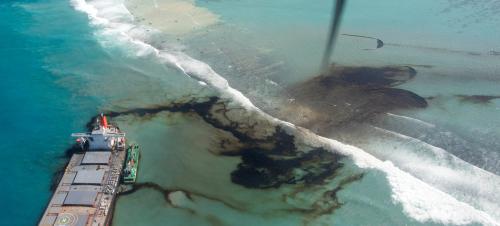
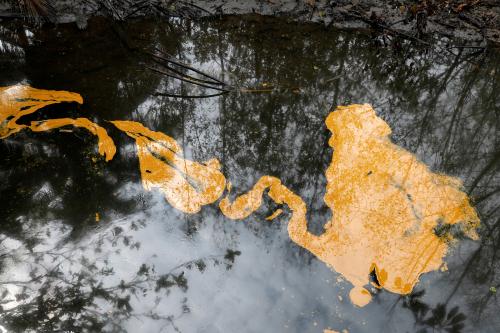
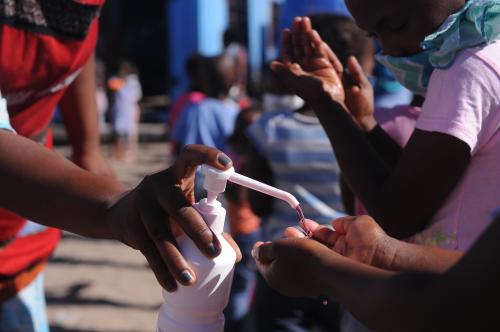
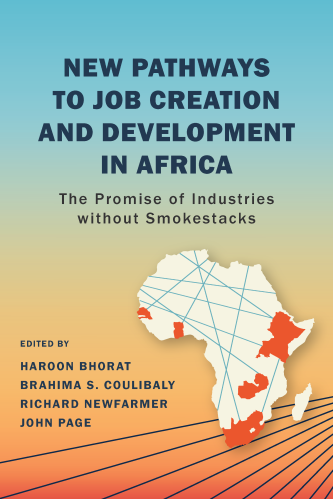
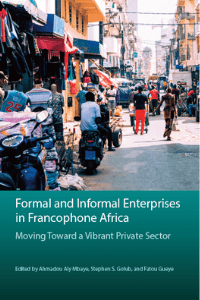


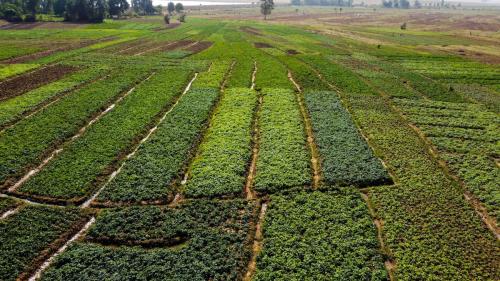


Commentary
Africa in the news: Updates on politics in Côte d’Ivoire and Mali, oil management, and COVID-19
September 19, 2020